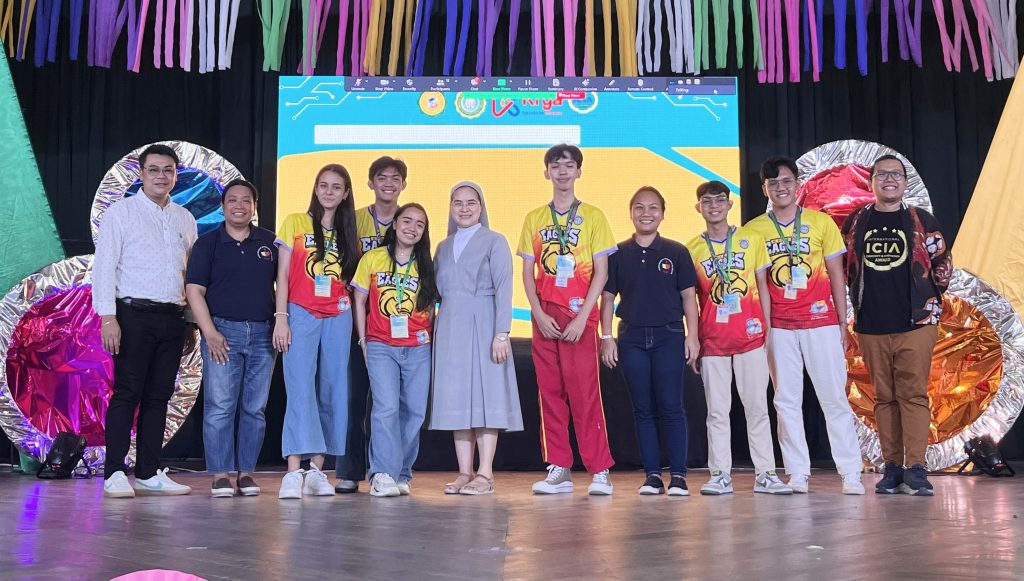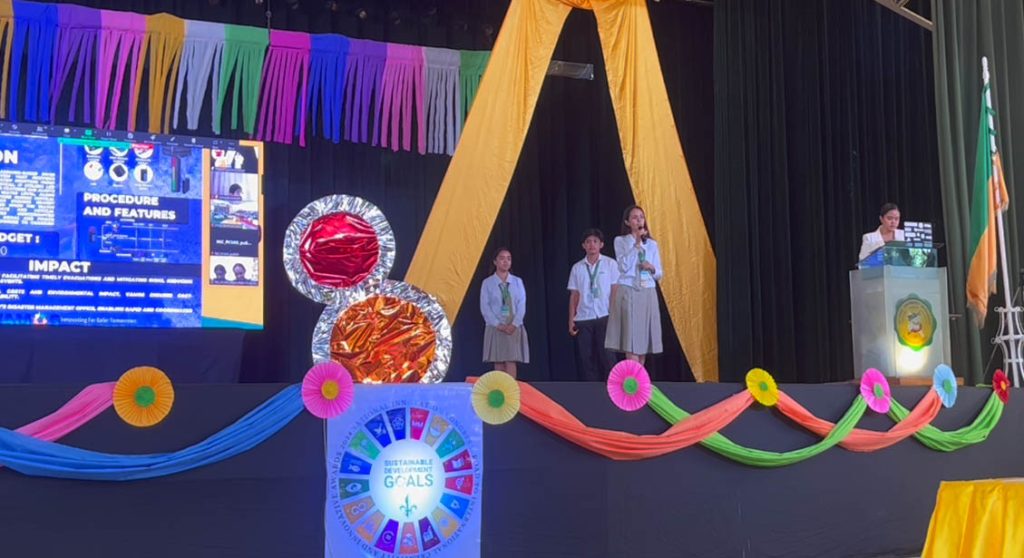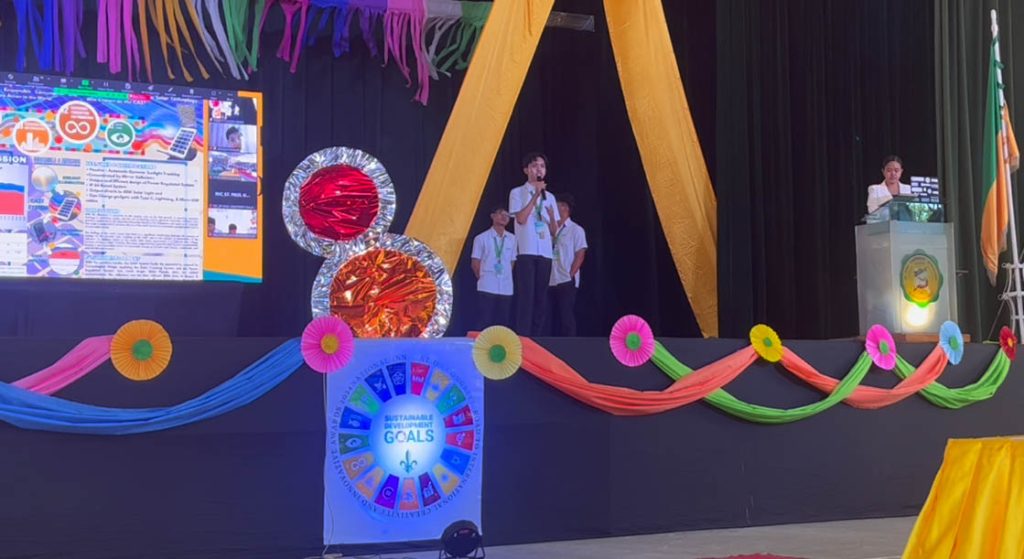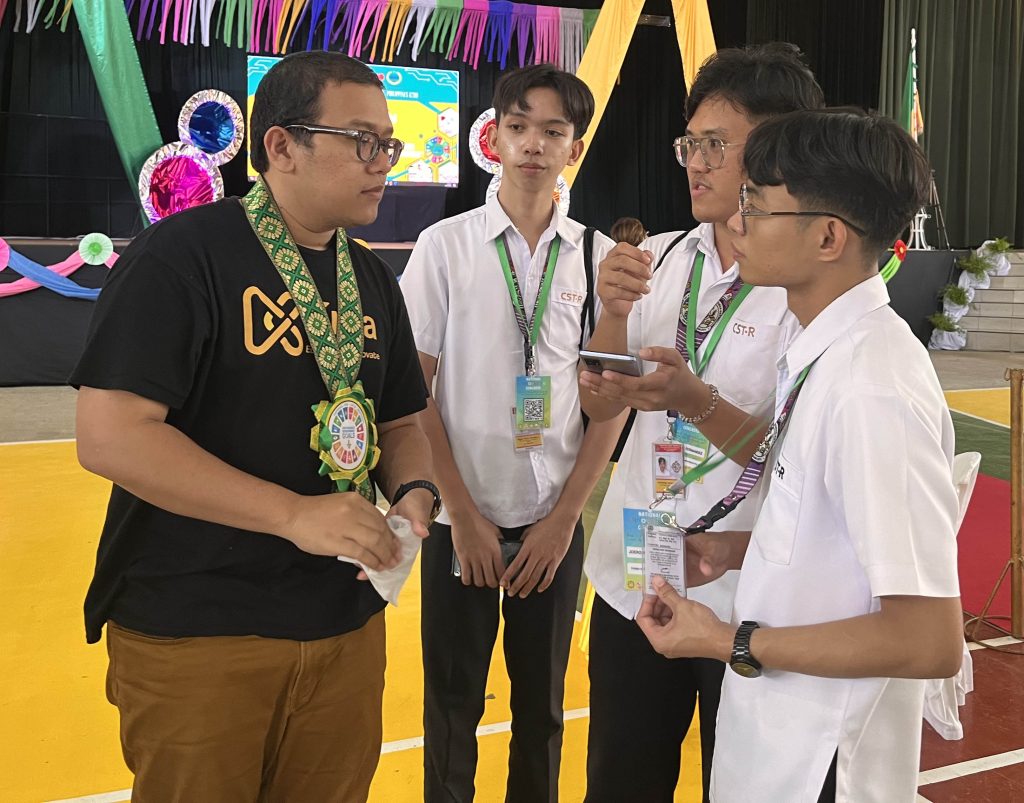Thomasians’ Way to ICIA 2024: From Inquiry to Innovation

EDITOR’S NOTE: A group of Grade 12 Thomasian innovators qualified as delegates to the International Creativity and Innovation Award 2024 in Bangkok Thailand after presenting a prototype of the Viable Arduino-Based River Level Monitoring System or VAMoS at the National Innovation Congress in St. Paul’s University, Dumaguete City.
It is collaboration that drives innovation forward.
The initial question was simple: How can we make an impact in our community as young Thomasian innovators? As a team of amateur student researchers, we spent countless hours brainstorming various ideas just to comply with our academic requirements. It was not until one of our team members shared his personal experience that we found our direction. There was a constantly flooded area within San Carlos City. There is the absence of an on-site technology-driven monitoring system, leaving residents, especially those habituating on riverbanks vulnerable to the hazards of floods. Clearly, if only this gap would be filled, community preparedness in times of flood would improve.
Creating a cost-effective and sustainable solution for mitigating flood risk became our goal. We then entered the world of Arduino technology in search of a solution. The solution: the Viable Arduino-Based River Level Monitoring System or VAMoS. It was merely an idea that became our dream. Now, it is our group’s reality.
With our idea and a little boldness in hand, we began our research process.
I have reflected on how life mirrors the research process—fraught with challenges and loopholes. We were also skeptical since most of us were not familiar with programming, especially with Arduino technology. Our determination pushed us forward. After conducting several literature reviews, we discovered existing monitoring systems that utilize solar technology and ultrasonic sensors. We compared them and spotted both advantages and disadvantages to each of them. We also explored the use of a Global System for Mobile Communications or GSM module, which facilitates communication between electronic devices. By adding this module, our system can now make calls to authorities and residents about the current water level in a river.
We also hit the sustainability factor by integrating clean energy. In addition to this is a buzzer and LED which can be considered as backup alerts whenever there are signal and power interruptions.
We all know that rain gauges already exist but we believe that having an onsite technology-driven river level monitoring system is essential. We further believe that investing in VAMoS signifies an investment in the safety and well-being of our community because this real-time monitoring system gathers on-site data and is a localized flood forecasting system that can send information directly to the community at risk.
Our research journey owes much to C.O.U.R.A.G.E.—the values instilled in us by Colegio de Sto. Tomas-Recoletos, Inc. Charity, Obedience, Universality, Recollection, Accountability, Grace, and Environmental stewardship guided us in this research journey that took us to the National Innovation Congress in St. Paul’s University in Dumaguete City last March 14, 15, and 16, 2024.
The experience was not merely about showcasing our innovation on a national stage but we were on a platform where everyone felt empowered to contribute creativity, take calculated risks, and present unique perspectives in order to improve our communities. At the congress, I realized that individuals grow in environments where their ideas are valued. Stepping out of my comfort zone as a first-timer was a huge challenge but believing in our innovation and in our team brought me confidence. We did not clinch the top spot but we are among the qualifiers for the International Creativity and Innovation Award (ICIA) that will be in Bangkok, Thailand from April 25 to 26, 2024.
You see, courage is not the absence of fear, but rather it is facing fear and doubt head-on. As a team, that’s exactly what we did.
This research and innovation journey also reminded me that in life, it is important to recognize that even if we excel in certain areas, we still have so much more to learn. Our innovation, the VAMoS would not have been possible without the invaluable guidance, inputs, and support of our teachers and adviser, who believed in our concept in the first place and stood by our side throughout its prototype preparations and concept defense.
This collaboration and cooperation took us to where we are today—at the brink of the ICIA 2024, the first-ever group of Thomasians to do so. The flame of Caritas and Scientia is truly burning in us. The spirit of Pioneerism as Augustinian Recollects is alive in Thomasians.



